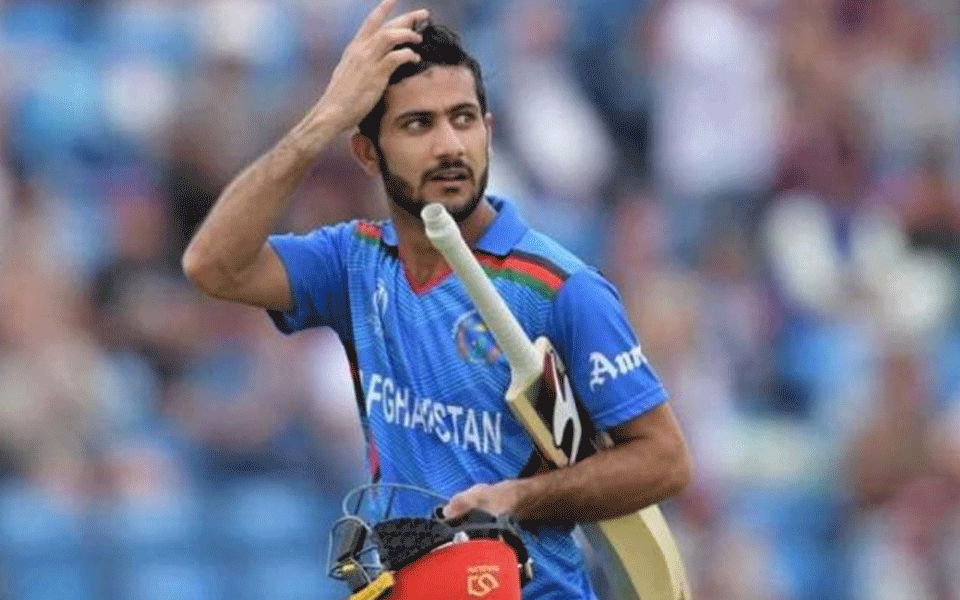Afghanistan batsman Ikram Ali Khil on Thursday broke cricket legend Sachin Tendulkar's long-standing record to become the youngest player to register a 80+ score in the World Cup history. Ikram Ali Khil, at the age of 18 years and 278 days notched up 86 runs in Afghanistan's last league match against West Indies, but failed to help his side end their winless run in the World Cup 2019. However, Ikram bettered Tendulkar's record, who had scored 81 runs at the age of 18 years and 318 days in a World Cup match against Zimbabwe in 1992.
Ikram Ali, who was included in Afghanistan's squad as injured Mohammad Shahzad's replacement, said he idolises former Sri Lanka captain Kumar Sangakkara.
The wicketkeeper-batsman also said he is fond of Sangakkara's abilities to rotate strike and tries to imitate him.
courtesy: ndtv.com
Let the Truth be known. If you read VB and like VB, please be a VB Supporter and Help us deliver the Truth to one and all.
Hyderabad (PTI): Telangana Chief Minister A Revanth Reddy met Union Home Minister Amit Shah in Delhi on Wednesday night and urged him to increase the sanctioned strength of IPS officers to the state in view of its growing administrative and security needs.
The two leaders also discussed the recent surrender of several senior Maoist leaders before the Telangana Police and other issues.
"During the meeting, the two leaders discussed the issue of Maoist surrenders and their rehabilitation. The chief minister informed Shah that significant improvements in policing have taken place in Telangana over the past two years," an official release here said.
Highlighting that 591 Maoists have laid down their arms and joined the mainstream of society during this period, the chief minister said the state government was providing them compensation and rehabilitation assistance as per the rules.
He requested the Union home minister to extend financial support from the central government for development works in the backward regions of the state.
Reddy also urged Shah to increase the sanctioned strength of IPS officers to the state from 83 to 105 in line with the state's growing administrative and security needs, the statement said.
The first cadre review after the formation of Telangana was conducted in 2016, while the next review, due in 2021, was delayed and finally carried out in 2025. Even then, only seven additional IPS officers were allocated to the state, the chief minister informed Shah and requested that the third cadre review be conducted in 2026 as per the schedule.
Reddy explained that Telangana, like the rest of the country, is facing several modern challenges, including cybercrime, drug trafficking, white-collar crimes, and other emerging security threats.
He highlighted the reorganisation of the Hyderabad, Cyberabad, and Malkajgiri Police Commissionerates, the proposed formation of the Future City Commissionerate and the rapidly growing population in Hyderabad to underline the increasing administrative requirements of the state.





